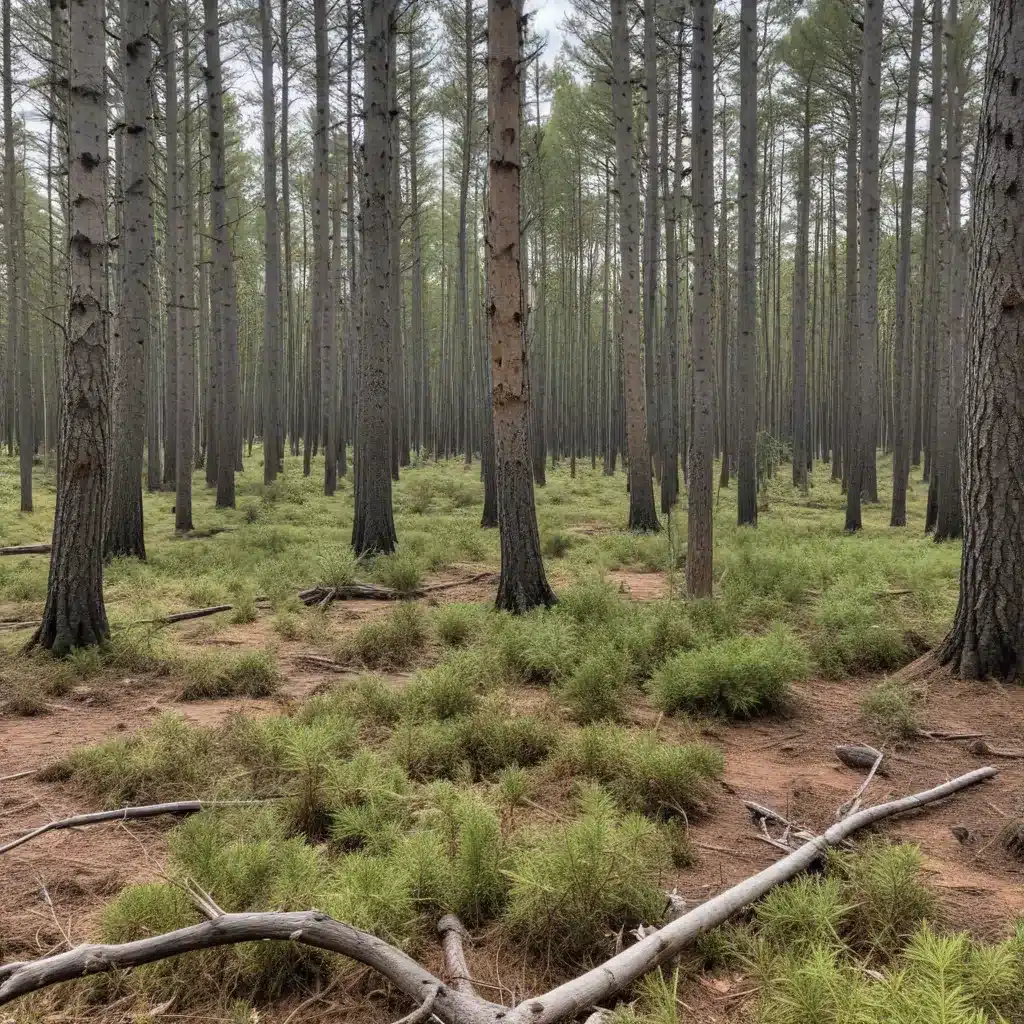
Crooked Pines Farm is a vibrant oasis of life, home to a diverse array of plants, animals, and natural habitats that thrive in harmony across our 50-acre property. As a farm educator, I’m excited to take you on a journey through the rich biodiversity that makes our farm a truly special place.
Ecosystems of Crooked Pines Farm
Our land is a mosaic of forestry habitats, grassland habitats, and wetland habitats, each supporting a unique community of living organisms. These diverse ecosystems are the foundation for the abundant wildlife and plant life that call Crooked Pines Farm home.
Forestry Habitats
The majority of our acreage is covered by a lush, mature deciduous forest, dominated by towering oak, hickory, and maple trees. These stately giants provide crucial shade, shelter, and food for a variety of animals, from squirrels and birds to deer and black bears. The understory is a vibrant tapestry of smaller trees, shrubs, and wildflowers like dogwood, redbud, and trillium, creating a multi-layered habitat for countless species.
Grassland Habitats
Interspersed throughout the forest, we maintain several large meadows and prairies filled with a diverse array of native grasses and wildflowers. These open areas provide important foraging and nesting grounds for pollinators, grassland birds, and small mammals. The seasonal blooms of coneflowers, milkweed, and goldenrod attract a dazzling array of butterflies and bees, highlighting the crucial role these habitats play in supporting local pollinator populations.
Wetland Habitats
Along the banks of our meandering creeks and ponds, you’ll find lush, riparian habitats teeming with aquatic life. Cattails, water lilies, and bald cypress trees line the water’s edge, providing shelter and food for a variety of waterfowl, amphibians, and insects. These vital wetland ecosystems not only support diverse wildlife but also play a crucial role in water filtration and flood control for the entire farm.
Flora of Crooked Pines Farm
Native Plant Species
Crooked Pines Farm is home to an impressive diversity of native plants, each adapted to thrive in the specific conditions of our various habitats. In the forested areas, you’ll find species like mountain laurel, oakleaf hydrangea, and yellow root, while our meadows and prairies boast the vibrant blooms of purple coneflower, butterfly weed, and little bluestem. These native plants not only add beauty to our landscapes but also provide essential resources for the local wildlife, serving as food and shelter.
Invasive Plant Species
Despite our best efforts, we do battle with a few pesky invasive plant species that threaten the delicate balance of our ecosystems. Kudzu, privet, and Japanese honeysuckle are just a few of the non-native plants we continuously work to manage and control, ensuring they don’t outcompete the native flora that is so vital to the overall health of Crooked Pines Farm.
Rare and Endangered Plants
We are fortunate to be home to several rare and endangered plant species, including the Oconee-bells and Florida Torreya, which require very specific habitat conditions to thrive. By carefully monitoring and protecting these fragile species, we hope to ensure their continued presence on our farm and contribute to their long-term conservation.
Fauna of Crooked Pines Farm
Mammalian Diversity
Crooked Pines Farm is a haven for a diverse array of mammals, from the majestic white-tailed deer and black bears that roam our forests to the smaller raccoons, opossums, and gray squirrels that scurry about our woodlands and meadows. The presence of these mammals is a testament to the richness and balance of our ecosystems, as they depend on the food, water, and shelter provided by the diverse habitats across our farm.
Avian Diversity
Our skies are alive with the vibrant colors and songs of countless bird species, from the ruby-throated hummingbirds that flit among our native flowering plants to the bald eagles and red-tailed hawks that soar overhead. These feathered friends play a vital role in our farm’s ecosystem, serving as pollinators, seed dispersers, and natural pest control agents.
Insect and Arthropod Diversity
Crooked Pines Farm is teeming with a fascinating array of insects and arthropods, from the monarch butterflies and bumblebees that pollinate our crops to the spiders, millipedes, and earthworms that aerate our soil and break down organic matter. These often-overlooked creatures are the unsung heroes of our farm, maintaining the delicate balance that allows our diverse ecosystems to thrive.
Conservation Efforts at Crooked Pines Farm
Habitat Restoration
At Crooked Pines Farm, we are committed to restoring and preserving the natural habitats that support our rich biodiversity. This includes carefully managing our forests, maintaining the health of our wetlands, and strategically planting native species to bolster the populations of key plants and animals.
Species Monitoring
To ensure the long-term viability of our ecosystems, we regularly monitor the populations of both common and rare species across our farm. By collecting data on the abundance and distribution of various plants and animals, we can identify any concerning trends and implement targeted conservation measures to protect vulnerable populations.
Community Engagement
Educating and engaging our local community is a crucial part of our conservation efforts at Crooked Pines Farm. Through our nature trails, educational programs, and community events, we strive to foster a deeper appreciation for the natural world and inspire others to join us in safeguarding the rich biodiversity that makes our farm so special.
By working in harmony with the diverse ecosystems of Crooked Pines Farm, we are able to enjoy the countless benefits of a thriving, balanced environment. From the vibrant wildflowers that attract pollinators to the majestic oak trees that provide shade and shelter, every element of our farm’s biodiversity plays a vital role in the overall health and resilience of our land. As we continue to explore and protect the natural wonders of Crooked Pines Farm, we invite you to join us on this journey of discovery and stewardship.


